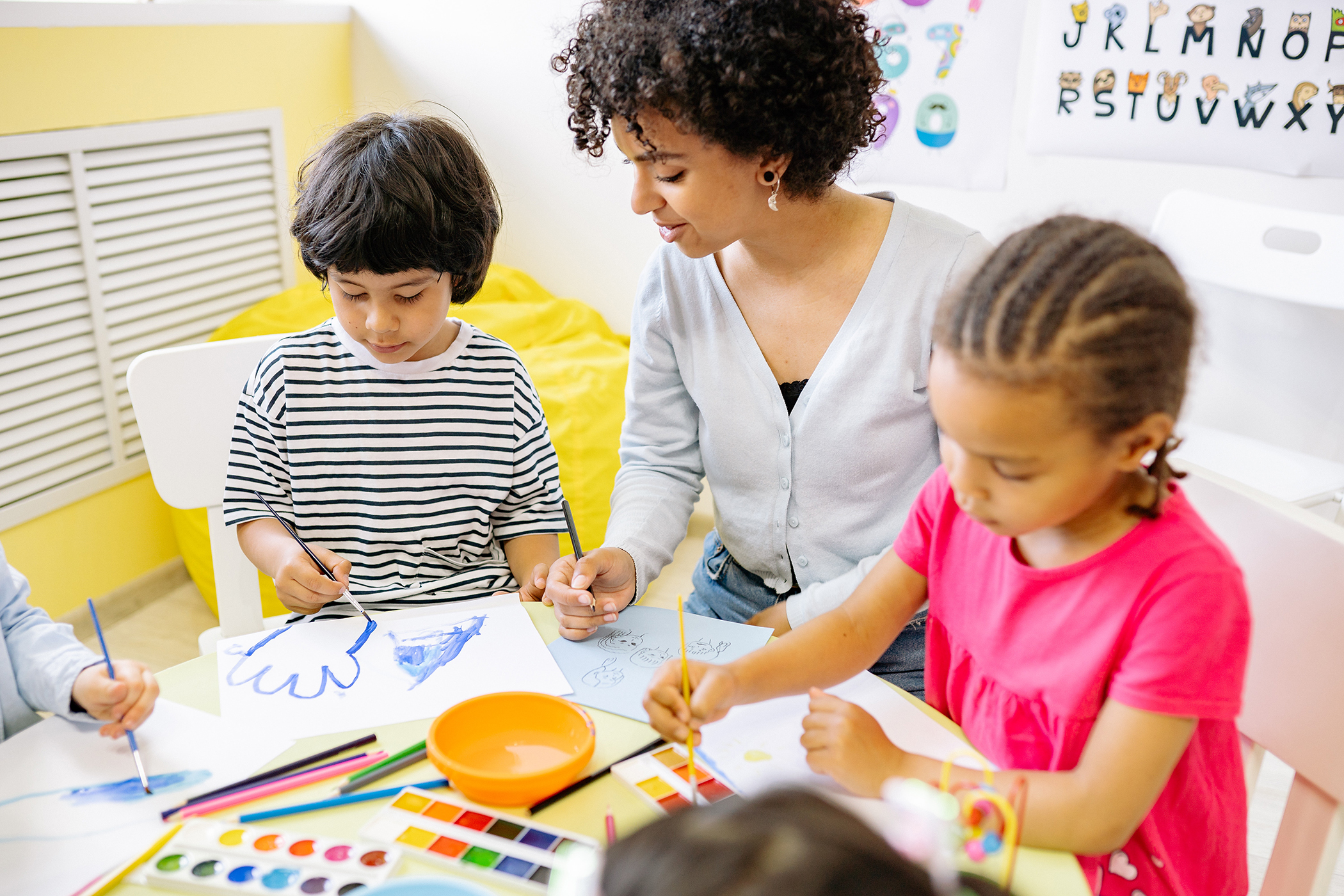Online Bachelor of Science in Education With a Concentration in Early Childhood Care and Education (Birth to Age 5)
Program Highlights

Program Highlights
120 credit hours | *In-state tuition: $380.51/credit hour | *Out-of-state tuition: $486.11/credit hour
*Tuition is based on 2022-2023 rates and is subject to change.
- Unique undergraduate program with a specific focus on culturally and linguistically sustaining methods for teaching children birth to age 5
- The entire program can be completed FULLY ONLINE, either all at UTEP or with combined coursework from El Paso Community College (EPCC) and UTEP
- Award-winning faculty who are ready to help you acquire the knowledge and skills needed to optimize the health, development, education, and well-being of infants, toddlers, and preschoolers through developmentally and culturally appropriate practices
Make a Difference, One Child at a Time
Our Early Childhood Care and Education bachelor’s degree will provide you with the skills you need to optimally nurture young learners in a variety of early education settings including Head Start programs, childcare centers, and community and child welfare programs. As a graduate of this program, you will be able to earn more and advance in your chosen profession; typical positions held by our graduates include:
- Early Childhood Lead Teacher
- Early Childhood Education Program Coordinator/Administrator
- Childcare Owner
This program does not provide licensure.
UTEP Edge
Our student success initiative, the UTEP Edge, develops upon students’ assets through a variety of high-impact experiences. These experiences are designed to improve student skills and give UTEP students a competitive advantage as they move forward in their lives and careers. Our goal as a campus is to provide these UTEP Edge experiences to all students, regardless of their area of study, so they will graduate with a competitive advantage over their peers. These are the Edge experiences Early Childhood Education students will have and the Edge skills they will graduate with:
Edge Experiences
- Community Engagement
- Creative Activities
- Online Experiences
- Internships
- Learning Communities
- Student Employment
- Research and Scholarly Activities
- Student Leadership
Edge Skills
- Leadership
- Problem Solving
- Communication
- Social Responsibility
- Global Awareness
- Teamwork
- Critical Thinking
- Confidence

"This degree has allowed me to implement what I've learned so far to better my center and give my staff tools for their professional toolboxes." - Alexandria Guzman, Student
MEET MORE STUDENTS
Course Overview
The 120-credit online B.S. in Early Childhood Care and Education program requires you to complete 42 credit hours of a core curriculum, 60 hours of college coursework and 18 hours of electives. All required College of Education coursework requires a combined minimum grade point of 3.0. A total cumulative grade point of 2.75 or higher is required for this degree program.
Note: Some courses require field observation hours; see course description for details.
College of Education Required Courses
ECED 2300: Early Childhood Professionalism and Program Evaluation
ECED 2310: Infant Care and Education
ECED 2320: Toddler Care and Education
ECED 3360: Observation and Assessment of Young Children
ECED 3380: STEAM Learning in the Early Years
ECED 3300: Child Development Applied to Early Childhood Practice
ECED 3305: Approaches to Early Childhood Care and Education
ECED 3310: The Arts in the Early Years
SPED 3310: Introduction to Inclusive Special Education
RED 3315: Foundations of Literacy and Learning
BED 3344: Parent and Community Advocacy in Bilingual Education
BED 4340: Principles of Bilingual Education
ECED 4335: Language and Literacy in the Early Years
ECED 4300: Responsive Class Management
ECED 4357: Play and Learning in the Early Years
ECED 4367: Perspectives on Managing and Leading in Early Care and Education
Examine management and leadership models within programs serving infants, toddlers, preschoolers and their families. Study leadership perspectives which mirror Early Childhood teacher roles, including creating a culture of responsive care, coaching, mentoring, and reflective supervision. Explore supervisory practices from culturally and individually appropriate lenses to address leadership initiatives in such areas as organizational management and mission alignment, teacher performance assessment and professional development. Keywords: Early Childhood Education; Developmentally and Culturally Appropriate Practices Early; Early Childhood Program Management/Leadership.
SPED 4350: Workshop in Special Education - Behavior Intervention With Young Children
SPED 4350: Workshop in Special Education - Collaboration in Early Intervention
ECED 4320: Early Experience and the Developing Brain
